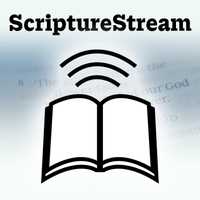- Lesson 2: The Laments
- Purpose
- The audience is God. The purpose is to ask Him to act in some way.
- Structure
- Lament psalms contain most or all of four distinct elements, often in the same order.
- Element 1: Address
- What is common about the first verse of Psalms 4, 5, and 17? “Hear me, O God.” See also Psalms 22:1; 54:2; 55:1; 61:1; 27:7; 39:12.
- How does this compare with Jesus’ example prayer in Matthew 6:9? “Our father, who art in heaven.”
- What is the importance or significance of using God’s name in a prayer or song? It formally addresses God and shows Him that we are depending on Him for the answer.
- Element 2: Plea
- What are the problems described in Psalm 3:1; 6:2,5; 109:2-5; 31:13? Human enemies, physical distress, schemes of men
- How did God react when the Israelites complained in the wilderness (Numbers 11:1; 16:41,49)? With wrath!
- Does God want us to tell Him about our worries? Consider I Peter 5:7; 3:12; Luke 18:1-8; Philippians 4:6. Yes!
- How does God not contradict Himself when He has these different responses to expressions of need? The difference is in the tone and the way the request is made.
- Element 3:
- Two types of requests dominate the lament psalms. Both can be seen in Psalm 7:10-11 and Psalm 109:26,29. What are they? Salvation and punishment for the wicked.
- The superscription of Psalm 57 shows the psalm described a specific occasion. What lessons can we learn from David’s request in Psalm 57:2-3? Did David have the power to fulfill his own request (I Samuel 24)? Why did he not do so? Physically he could have done it, but it was not his place to do so. He was relying on God for a solution.
- Purpose
JS
February 19, 2014
For further study, see also:
Questions or comments? Join our Discord server for further study.
